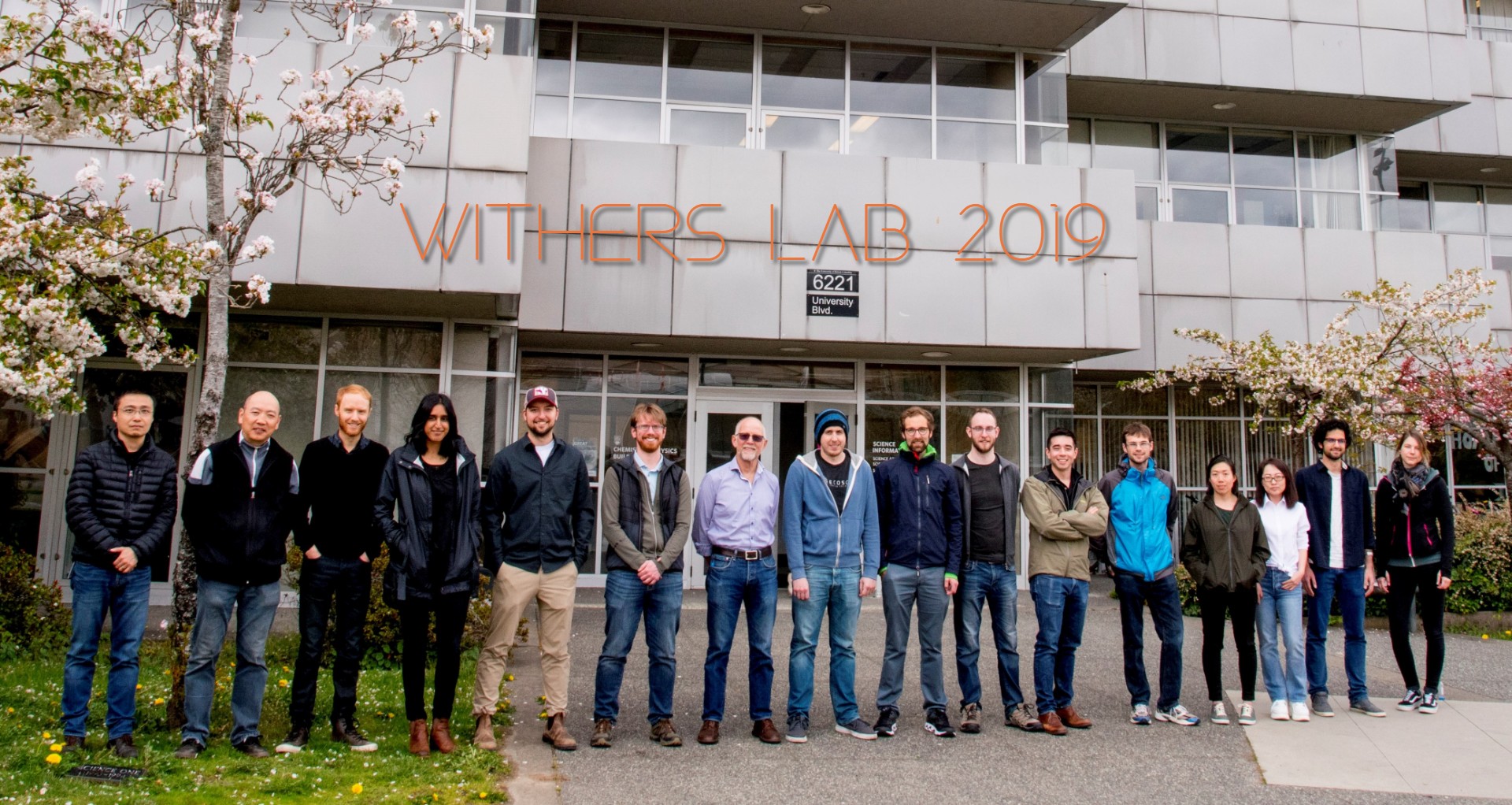
Stephen Withers
Profile
Research and Teaching Interests
Our interests focus primarily upon enzymes that catalyse glycoside formation and hydrolysis, since these play crucial roles in all areas of biology. Applications of our research (see below) range from the development of new catalysts for industrial processes to the design, synthesis and testing of new therapeutics.
Understanding: Mechanistic studies are the foundation of our program and range from the discovery and analysis of "new" mechanisms by which enzymes catalyse these reactions through to development of a deeper understanding of how the enzymes for which we know the fundamental mechanisms achieve such enormous (107 fold) rate accelerations. The approaches adopted involve a combination of synthetic organic chemistry (synthesis of substrate analogues, inhibitors, etc.), molecular biology (cloning, mutagenesis, etc.,) and biochemistry (enzyme purification, kinetics, labeling, peptide mapping). These are often coupled with collaborative crystallographic and NMR studies of protein/ligand complexes to gain insights into structures, dynamics and electrostatics of the species along the enzyme’s reaction coordinates. We also utilise mass spectrometry for peptide mapping and gas phase studies. Central to our mechanistic studies are the databases CAZY and CAZYPEDIA.
Inhibitors of glycosidases have value both as mechanistic probes and as potential diagnostics and therapeutics. Mechanism-based covalent inhibitors, often based upon fluorosugars, have been designed and used by our lab to prove covalent catalysis, to identify active site residues andto visualize structures of reaction intermediates. These, along with non-covalent inhibitors, are being developed as potential therapeutics in conjunction with B.C.’s Centre for Drug Research and Development (CDRD). Trials are currently underway for new treatments for influenza (neuraminidase inhibition), diabetes (α-amylase inhibition) and lysosomal storage diseases (pharmacological chaperones). These candidates were derived both by design / synthesis and by high-throughput screening of natural product extracts.
Engineering: a particular challenge in glycoscience is the efficient assembly of oligosaccharides and glycoproteins – especially on the large scale. We have generated glycosynthases and glycoligases (engineered glycosidases) for the high-yielding assembly of glycosides. Through application of directed evolution approaches that mimic the process of natural selection, but in the laboratory, we are generating improved versions of these enzymes with activities up to 5000 times higher than their parents. Our involvement in the Centre for High-Throughput Biology (CHiBi) is central to such studies. Students interested in genome-wide and high-throughput chemical biology studies are also alerted to our new Genome Sciences and Technology (GSAT) graduate program.

Contact
Curriculum Vitae
B.Sc., Bristol (1974); Ph.D., Bristol (M.L. Sinnott, 1977); Postdoctoral, Alberta (N.B. Madsen and B.D. Sykes, 1978-82); Fellow of the Chemical Institute of Canada; Merck, Sharpe and Dohme Award of the CIC (1989); Corday Morgan Medal of the Royal Society of Chemistry (1990); Rutherford Medal, Royal Society of Canada (1992), Khorana Chair of Biological Chemistry, UBC (1997), Hoffman LaRoche Award of the Canadian Society for Chemistry, 1998, Charmian Medal of the Royal Society of Chemistry, U.K., 2001, Whistler Award, International Carbohydrate Organisation, 2002. Scientific Director of the Protein Engineering Network of Centres of Excellence (PENCE)2000-05; Jacob Biely Faculty Research Prize (UBC) 2005; Finalist, NSERC Herzberg Award 2010; R.U. Lemieux Award for Research in Organic Chemistry (CSC) 2011; Director, Centre for High-Throughput Biology (CHiBi) 2008 - present; Canada Research Chair in Chemical Biology, 2008 - present; Fellow of the Royal Society of London, 2012, Centenery Prize Royal Society of Chemist, 2012, Killam Research Fellowship, The Canada Council for the Arts 2014-2016.
